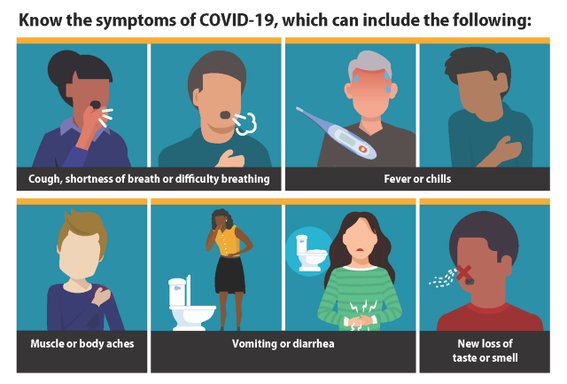|
COVID-19 Update, September 28, 2020
Good afternoon! The state Department of Health (http://www.doh.wa.gov/) wants to keep you as informed as possible about continuing developments surrounding COVID-19 as well as guidance and resources you can share with employees, clients, or customers. Winter is coming COVID-19 spreads easily from person to person in crowded indoor spaces—especially if we hang out for a long period of time and talk. We have learned this summer that small outdoor gatherings are much safer than indoor gatherings. But we are about to get chilly. We need to start thinking about how we will see our friends and family, stay warm and dry, and protect ourselves from COVID-19. Every bit of risk reduction matters. When our risk goes up in one way, like because the kids return to school, or we gather with some friends indoors, we need to do everything we can to reduce our risk in other ways.
Numbers. The latest numbers are on our webpage. As of 11:59 p.m. on September 26, 86,269 people in Washington have tested positive for COVID-19. Of those, 7,455 people had to be hospitalized, and 2,100 people (or 2.4%) have died of the disease. More COVID-19 data can be found on the DOH website and in the state’s risk assessment dashboard. Practice compassion. Keep the number of people you see in person very small. Don’t forget to call or text folks you haven’t been able to see to say hello and keep in touch! Social connection helps all of us stay happy and healthy! Don't forget your flu shot! Lauren Would you like to subscribe to this update? You can do so here. Contact: Lauren Jenks, Department of Health Assistant Secretary, 360-259-0374 Department of Health call center: Call 1-800-525-0127 and press # from 6 a.m. to 10 p.m. Monday - Friday, and 8 a.m. to 6 p.m. Saturday - Sunday. Please check our website for the most up-to-date info on Washington’s response to COVID-19 at www.doh.wa.gov/coronavirus.  A survivor’s tale Washington State Department of Health Aug 26 · Charlotte* doesn’t remember much of March. She doesn’t even remember getting the positive COVID-19 test. She remembers thinking maybe she was having allergies in the beginning of March, but by the end of that week she “got really sick really fast.” When Charlotte started having trouble breathing, she was taken by ambulance to Swedish Hospital and put in isolation. When she arrived at the hospital, her breathing was so bad that she couldn’t even blow out a candle. Symptoms of COVID-19 include things like body aches, fever and chills. Charlotte lives in King County. She’s in her early 40s and has no underlying health conditions. Since she wasn’t considered to be at high risk for getting seriously ill with COVID-19, she wasn’t too concerned about getting it. That all changed quickly. Shortly after Charlotte got sick, her husband and both her kids also got COVID-19. Like most people, her husband and kids had mild illness and recovered just fine in about two weeks. Mild illness can be pretty miserable though. Charlotte’s husband had a high fever and severe body aches which had him in bed for almost a week. Along with her breathing troubles, Charlotte had a low-grade fever, diarrhea, lost her sense of taste and smell, and had body aches that she described as much, much worse than those you might get with the flu. Her recovery has had ups and downs, but the most severe symptoms lingered about a month. Months later, she is better, and working again, but still recovering. Even now, she finds herself completely exhausted by the end of her work day. Charlotte gets very frustrated when people minimize the effects of COVID-19 and say things like, “It’s just like the flu.” She told us, “COVID is brutal. It is definitely something you don’t want to get.” The long, slow recovery has been “for a healthy person…far more than I ever anticipated.”
Charlotte’s experience with COVID-19 has changed her perspective on life: “We just don’t know what life has to bring and I want to live life to the fullest while I can.” Practice compassion. Even if you are not in a high-risk category, you could still get very sick from COVID-19. And mild illness is no fun either! Protect yourself and your loved ones. Keep your gatherings small, infrequent, and outside. Cover your face when you are in public. *name has been changed to maintain confidentiality More information Stay tuned to our blog for more information on how you can help stop the spread of COVID-19. Sign up to be notified whenever we post new articles. Information in this blog changes rapidly. Check the state’s COVID-19 website for up-to-date and reliable info at coronavirus.wa.gov. Answers to your questions or concerns about COVID-19 in Washington state may be found at our website. You can also contact our the Department of Health call center at 1–800–525–0127 and press # from 6 a.m. to 10 p.m. Monday — Friday, and 8 a.m. to 6 p.m. Saturday — Sunday. Language assistance is available. Please note that this call center cannot access COVID-19 testing results. For testing inquiries or results, please contact your health care provider. |
|
